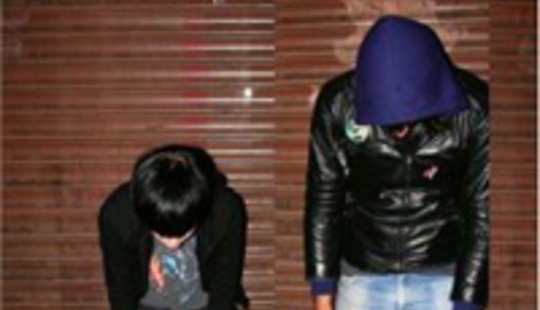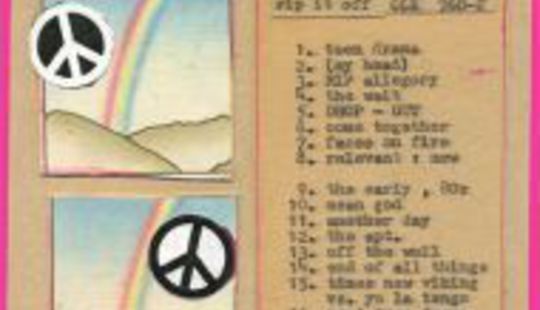
By 1977, the New York punk scene had run out of steam. The major bands - Television, The Ramones, Talking Heads, Blondie, Patti Smith - were all signed to big labels and constantly away from the city touring. Meanwhile, the upstart Brit's stole NY's thunder by upping punk's outrage element with anarchist rhetoric and a subversive anti-fashion look that was light years ahead than the scruffy leather-jacket retro look. On top of this, New York punk was frequently criticised for not being sufficiently forward looking. Even the scene's most adventurous band, Television, drew heavily from on late sixties acid rock. It seemed like the City had perhaps had its moment, that was until a second generation of innovation charged New York bands emerged, who came to be called 'No Wave'.
No Wave was a short-lived but highly influential art-music scene that thrived briefly in the late 1970s and early 1980s. The term 'No Wave' was in part a parody rejecting the commercial elements of the then popular New-Wave genre. Search through the history of music and you'll only find a handful of precedents for No Wave: Velvet Underground at their least songful, The Plastic Ono Band and Captain Beefheart's Trout Mask Replica. But, crucially, the No Wave bands acted as if they had no ancestors at all. No Wave was defined less by a sound than by this 'Year Zero' approach. Musically, the groups ranged from jazz, funk, blues, punk rock, avant-garde and experimental rock. There are however certain common elements such as repetitive driving rhythms, abrasive sounds and lyrics focused on confrontation and nihilism.
No New York is a compilation album released in 1978 by Antilles Records under the curation of producer Brian Eno, who at the time had already worked with the likes of Devo and Talking Heads. Eno was so taken by No Wave, that he invited four of the scenes best artists - James Chance and the Contortions, Teenage Jesus & The Jerks, Mars and DNA - to contribute four songs each to make-up what is now considered by many (including yours truly) as the definitive album documenting the movement.
No Wave has had a notable influence of noise bands such as Big Black and Helmet. It also heavily influenced the early sound of Sonic Youth as well as more modern bands such as Ex Models and Liars. Numerous books have been released documenting the movement of the scene in great detail including No Wave by Marc Masters and Rob Young, and No Wave: Post Punk: Underground. New York 1976-1980 by Thurston Moore (of Sonic Youth) and Byron Coley. I urge you to check them out. In the meantime, here are my picks from No New York.
mp3s:










No comments:
Post a Comment